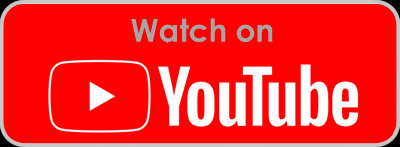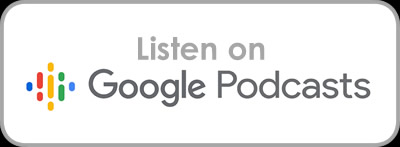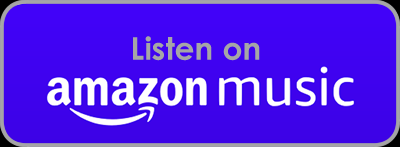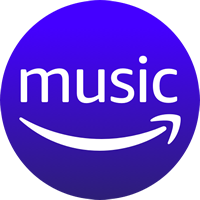SEO’s changed a lot over the years.
And no – it’s not dead yet! It’s not going to die 😃
It’s still very important for your business.
In fact, in this, episode 254 of Digital Marketing Radio I’m speaking with a man who believes that nothing can take your business to the next level like search engine optimization.
Why do I know that? It’s on the back cover of his brand new book – Product-Led SEO: The ‘Why’ behind building your organic growth strategy.
He’s a former Director of Growth at Survey Monkey and current Growth Adviser and SEO Strategic Consultant at the likes of Tinder, Coinbase and Mixpanel – welcome to DMR – Eli Schwartz.
Key questions covered in this episode:
-
Why do you believe that no other channel can match SEO?
-
What is product-led SEO and why is it different?
-
Is product-led SEO suitable for any type of business?
-
Can you carry out product-led SEO for a product that already exists?
-
What about if you’re working in a large organisation and you don’t really get the opportunity to be involved in product development?
-
You give Amazon as an example in your book, but Amazon relied heavily on Google AdWords in their early days – so should a marketing department focus on paid ads first?
-
You also talk about how Bill Gates coined the phrase “Content is King” back in 1996…
It has been possible to be very successful from an SEO perspective with fairly shoddy content until relatively recently – but what kind of content do you need for SEO success nowadays? -
Chapter 3 of your book is “SEO is a job for humans” – what tasks are good to automate and what SEO tasks will you always need human involvement in for the foreseeable future?
-
How does SEO integrate with other forms of digital marketing – for example, how do SEOs and social media marketers achieve more together?
Secret Software:
Calendar.com, Nightwatch & RankRanger
Next on the List:
Email marketing!
Magical Marketer:
Junior marketers who have the courage to ask Eli a question!
Audio recording:
Full transcript:
David Bain
Digital Marketing Radio Episode 254. What is product led SEO? And why does it matter?
Bot
Digital Marketing Radio with David Bain.
David Bain
I’m David Bain. And this is Digital Marketing Radio, the podcast and YouTube show for in-house agency and entrepreneurial marketers who want to stay on top. But that is tools, tactics and trends, as shared by today’s modern marketing masters. SEO has changed a lot over the last few years. And no, it’s not dead yet. It’s not going to die. It’s still a very important part of your business. In fact, in this episode 254 of Digital Marketing Radio, I’m speaking with a man who believes that nothing can take your business to the next level like search engine optimization. Why do you know that is on the back cover of his brand new book a product lead SEO, the why behind the building your organic growth strategy. He is a former director of growth at Survey Monkey and a current growth advisor and SEO strategic consultant at the likes of Tinder coin base and mixpanel. Welcome to DMR Eli Schwartz. Great to be here. Thanks for having me, David. Yeah, thanks so much for coming on. And I’m so you can find Eli over at Eli schwartz.co. So Eli, why do you believe that no other channel can match SEO?
Eli Schwartz
It means the core thesis of my book is that SEO is the most profitable channel. It’s the highest growth channel. And I think, you know, one of the things that everyone has to think about who actually says that SEO is dead? Is How many times do they not do SEO? Do they not click on something on a search result? Like how many times they click on a paid ad? How many times do they discover something on just paid social? How many times are they only discovering products that people told them by word of mouth or you know, an email, we’re all searching, we’re all buying from search, most of the stuff that we discover for you know, it’s hopefully the summer of travel, everyone that’s planning their travel this year, you’re doing Google searches, two of you are doing Bing searches, but you’re all clicking on organic results. And the effort that those companies put in to be visible organically, they don’t have to do that on a daily basis. They don’t have to continue paying for that position. They invested in something, they build something great, and they continue to stay there. So that’s why I think it’s first of all, never ever going to die. And second of all, it’s the most profitable channel because you put that investment in you build your strategy, you decide where you want to be placed. And then you can really sort of sit back and wait for the results to roll it. So you’re building that investment and you can go on vacation. And if you’ve built something great, it will continue working for you.
David Bain
So leafing through your book, you use Amazon as one of your examples. No, Amazon, as far as I’m aware, we’re very much driven by Google ads or Google AdWords, as it was called back then, in terms of early success. So I guess what I’m trying to say is, is heavy focus on SEO appropriate for every stage of your business? Or is it more appropriate to focus on paid first? And then SEO once once you get a bit of traction?
Eli Schwartz
Yeah, so I love that question. And I talked to you know, I’m fortunate that, you know, a lot a lot of people reach out on LinkedIn to talk about potential consulting engagements, the book has helped drive some more of that. And I’d say probably three quarters of the conversations I have with companies, I tell them that they shouldn’t be talking to me, I tell them that they should go find a paid agency, or they should hire someone to manage their paid spend. And the reason why is because SEO is that 12 to 18 month investment. If you’re early in your development of a company or you’re early in product market fit, you don’t have 12 to 18 months to sit around. Even more than that you don’t have the resources to invest in a strategy that you don’t know is necessarily going to stick where you don’t have the resources to devote to something where there isn’t necessarily something to do every day. That’s why I think paid marketing is that the place everyone should go and they should start with. And once they have reached some sort of marginal level, and that could be they’re spending too much money. You know, for some company spending too much money is you know, 100,000 down the dollars. For other companies, it’s $2 million. Whenever they reach that point where they just say, you know, I’m spending a lot of money, what if I took 5% or 10% of what I’m spending on paid and tried to replicate this organically? That makes a lot more sense, then we must do SEO, we have to figure out SEO. You don’t have to figure out SEO there are many, many companies that never ever figure out SEO. And I think Amazon’s a great example that what Amazon did. And the reason that I talked about Amazon my book and the reason I love Amazon is Amazon doesn’t do SEO, the way that most people do SEO, they Amazon does product lead SEO I did not invent that term. And I didn’t come up with this idea what Amazon does, is they focus on SEO as a product, which is how do we build the most optimised website in the world to surface all products. They don’t care to say we need to be number one on shore microphones. We need to be number one on Logitech webcams. They just say we’re going to Build the most optimised page, the crosslinks that has the best content that is built the way that first of all users are going to engage and buy. Because the most important thing to Amazon, of course, is that people shop not that they read. It’s not a content website. It wasn’t a content website. Now, now, it’s debatable what they do with all that content. But that’s why they built their company, they built their website as a product. And you know what, many, many times they win. And many times they don’t win, and no one’s really paying attention to that they’re looking at the aggregate. And I think what’s amazing is I wrote my book before 2020 happened. It was it was wrapping up in 2020. And one of the hottest or few of the hottest items that people searched for in the year 2020. Amazon was ranking number one for and in 2000, or whatever year it was, they came up with an SEO strategy. No one said, You know what, in 20 years from now, it’s going to be really important that we’re ranking for latex gloves, and surgical masks and toilet paper and hand sanitizer. But they did because they built that really, really good product. So it wouldn’t have made sense for Amazon to only build from SEO and ignore every other channel. Absolutely not. They wouldn’t be Amazon today, if they had. Instead, what Amazon did was they built this really, really good product, they built this really good website, really good e commerce category catalogue. And then on top of that, they drove paid ads towards their website, so people would discover their product offering, they built an amazing brands, they built word of mouth, right? They did all those other things, and then SEO complements it. And you know, we don’t know how much of their revenue is driven by SEO versus other channels. But SEO is a sizable part of their revenue. And it was not an it could not have been early on. And they may not have been Amazon had they actually said, you know, what we’re gonna do is we’re gonna crush it organically.
David Bain
Yeah, I’m not sure if Amazon spent any money in content, because nowadays, of course, they publish other content, but they get influencers to create the content on their behalf. And there’s there’s they’re very focused on video Now, of course, as well. But in terms of product lead SEO, you gave a massive e commerce site as an example, does that mean that product lead SEO is more suitable for e commerce and for other brands out there that may not have a large portfolio of products that perhaps aren’t an e commerce brand, that product lead SEO isn’t right for them? product lead
Eli Schwartz
SEO is right for anyone that wants to do a strategic SEO play. And what I mean is, and we can break that down a little bit of who is who that, first of all, SEO should not apply to actually let’s talk about that first. There are many sites that should not do SEO at all, and should never do SEO. And the reason I think ecommerce is a great fit for SEO is because you can easily track that conversion. What most people do when it comes to e commerce is they have a very specific need. They search, they find the product, if it makes sense for them, they buy that product, maybe they’ll do a little bit of comparison shopping, but it sort of ends there. It’s not going to be one of these things where they’re like, oh, wow, I really need a microphone. This is what I want for Christmas. And let me make sure to bookmark this page. And when it comes time for Christmas, I’m going to come back and revisit this. Now when it comes to other sort of products that are like that. And you know, great example, that is B2B SAS, where you have a specific need, you discovered that there’s a specific product that will or specific software that will solve that need. Then you go to your boss, or you go to your CFO, and you start thinking through budget, and then you know you get retargeted and you’re not really sure whether this is something you want to do. But the retargeting ad says come join a webinar or you get a free trial, the attribution gets very messy. So is SEO a profitable channel for that probably. But it’s hard to know, e commerce, I think it’s very easy to say, Well, someone searched and then they bought most people bought within that session. So that’s where I think SEO makes a lot more sense. When you can say this is a profitable channel. This is where I know to invest into now switching back to product led SEO. There’s lots of ways to do SEO. But my hypothesis in the book is when you’re doing SEO, it’s not about and we’ll talk about this, I’m sure. It’s not about like doing keyword research and saying I really want to optimise for this term, because a lot of people search it, and therefore I need to write content for it. I don’t think that makes any sense whatsoever. Because it’s not about whether a lot of people search for it. It’s do a lot of people need what I’m creating. And that’s what I advocate for the book rate something that people need. And this is something I looked at yesterday. Actually, I don’t know when you’re releasing this, but I’m sure that when you release this episode, the Delta variant will still be bothering many people will still be very concerned.
David Bain
Maybe within the next few weeks. Yeah.
Eli Schwartz
Okay. So delta variant is still going to be concerning for many people, and for a long time in the future. And if you look at this search, the searches on Google Trends for the word Delta, they spiked twice in the last 18 months. The first time was, I think, last October, when there was a hurricane named delta. So everyone’s searched Delta, Delta hurricane, and it’ll be worth searching Delta variant. Now, if you were to optimise just for search volume, if you were, you know, competing with Delta Airlines, maybe he would look at this and say, Wow, there’s so many searches per month, but you’re not really digging into the context. What do people Want to know, when they searched the word Delta? Do they want an airline? There’s a plumbing company named Delta. Do they want to know like, you know what the damage from that hurricane was? Do they want to know? What are the symptoms of the Delta variant. So when I see product, let SEO, I really bring it back to your building the product, you’re not just creating a blog post, because there’s a lot of search volume for that piece of content. There’s a lot of search volume for what you really want to say is when people search this word, what is it they want? They want, again, if it’s the Delta variant for COVID, they want a list of symptoms, or maybe statistics. If it’s Delta Airlines, they just they want Delta Airlines website, that’s all they want. Right? If it’s a Delta hurricane, they probably just want you know, list of, again, a list of statistics, writing a long blog post doesn’t really help. And I’d say like, one of my favourite examples of of how SEO has sort of changed and maybe SEO misses the mark today in the wave. Some people do this is when you think about sports games. So there’s a popular search, or there was a popular search, what time does the game start? So back in the day, there were many, many media sites, they used to write entire blog posts. So what time is kickoff? And I don’t know how you start your European football games. But they, they started the game. So we want to know what time What time does the game start? Right? What, and you could write a blog post. So what Google did, and I call that SEO arbitrage. Because you’re trying to grab that search. And then you write this really long blog post, and people have to read through and be like, Oh, cool. 16. Yeah, that’s all I needed to know. Now, Google disintermediate, that with a knowledge graph, and the results, and they just give you give me the answer, but I’d say like, what’s most important is understanding what is it the user wants? And then you’re building a product around what is it the user wants? and switching back to Amazon and you said content for you know, talking about Amazon creates content? Amazon owns IMDb. So when someone searches the name of a movie, they’re looking, most likely, they just want to know if it’s a good movie. So why would you build an entire review and make people read through it and be like, well, this is a romantic comedy. And you know, this thing happens, and that thing happens. And then the end, you’re like, you know, I don’t recommend you watch it. imdb. They know exactly what people want, they want to know is a good movie, here’s a score, maybe scroll down a little bit. Here’s some people that are in it scroll down more, maybe they’re snippets from the movie, that’s called building a product. That’s not saying, Oh, well, people search the name of this movie. So I’m going to write a really long piece of content make you suffer through reading that piece of content.
David Bain
So it’s not a good idea for a business to have a blog anymore.
Eli Schwartz
If it makes sense, if there are users that need to read that block. So in breaking this all down into how different sort of businesses should do SEO, so B2B S, B2B SAS, I don’t think they should necessarily invest in SEO, because it’s going to convert their product their acquisition into into product sales directly. I’m sure SEO always works, but I don’t, it’s not really trackable. However, they can do brand SEO. So one day, people are going to go back to conferences, and they’re going to be introduced to B2B software. So maybe that’s when a blog post makes sense to saying, Hey, this is how our product is different, or this is how our team has these diversity goals. So if you want to work with one of the companies that do all the same thing, you want to work with our company, because we’re better people. So that’s where a blog makes sense. But to write a blog just to go after keywords, it has to be something that people want to go after keywords for.
David Bain
So if an SEO has an opportunity to work closely with a product developer, what kind of insights can they give the product developer to try and steer them in a direction of creating something that people actually want?
Eli Schwartz
Talk to users? I’d say like the number one thing I’ve seen in my career, and in the most successful SEO websites, or ones that have such tight engagement with users. So really understanding what is it that the users want? So you know, flipping back to IMDb, IMDb knows that users just want to score, they don’t want an entire review, unless they search the word review, like movie review. So whatever it is that you’re building, know that you’re building it for real users. In my book, I give examples of how you can gather this data. So you can do you know, run surveys, so that can be like an actual survey where you send it out to potential users, or that could just be like, talk to 10 people, you know, get qualitative responses of what are people looking for when they have this specific problem? And what do they expect to see? Do they want to see a video to they want a long form content? Do they just need a table of data? So when you’re building and that’s why I love calling a product, let SEO because when you build an actual product, you build something because you believe there’s going to be product market fit. That means you’ve talked to users, you’ve done your research, when you’re doing SEO, it should be the exact same thing. It shouldn’t be based on going to the Google Keyword planner or going to Semrush or going to h refs and saying I’m gonna write this because there’s this amount of people searching for it per month. Absolutely.
David Bain
And you because well, you say that Bill Gates said that content is king back in 1996. And up to maybe 10 years ago or so it was certainly possible to be very successful from an SEO perspective, from Fairly shoddy content? is there is there a certain type of content volume of content that users and search engines alike are more likely to prefer nowadays?
Eli Schwartz
I think what Google’s really getting into is they’re trying to better understand what content users want. Now, I know there’s a constant debate over whether users of Google uses click metrics from the search results. I don’t think Google looks at click metrics on individual search results, because it’s just too complicated. And I was fortunate in that, you know, I lived in Silicon Valley up until very recently, and I had many, many friends that worked at Google. And they had very specific things that they weren’t allowed to talk about. But I had some specific questions that I knew how to ask them and figure out and sort of glean information. And one of the things that I’ve learned from all of my friends that work at Google, and I hope they don’t listen to this and know that they gave me secret information is that Google is a super scientific company, everything they do is based on data. So like, even when it comes to and I’ve had multiple friends that worked on the spam team. So even when it comes to analysing reconsideration, reconsideration requests and analysing spam, and if someone sends in a reconsideration request, and they say, we’ve done all these things to fix our site, and we deserve to back in index, the person on the search quality team has to read that and ignore all the emotion behind it. And what they do is they run a script on it. And they scientifically look at that waiting and say, Is it good? Is it that the same thing I believe happens in search results, Google is not going to scientists are going to say, Well, you know, this just got more clicks, and therefore it should be number one, Google’s looking aggregate and looking for ways they can write code to say, well, this website, in aggregate, more people bounce faster. So let’s do an experiment to move it up or down. So I think Google does look at click metrics at a at a grand scale, to try to learn how to make better results. And like that is what and I talked about this in my book, how search is just a product, Google’s improving the product for everyone. So when Google’s grading algorithm updates, they’re just new product releases, just like when they update their pixel in the update and Android. So Google looks at types of content. And then from that they learn what is it that people want it through? Again, do they want video is, you know, there’s a there’s a search people are doing and they all want multimedia content. So they’re going to LinkedIn video, and they’re going to link to music playlists, or is it something that they want long form content, they want to analyse something. So I think that’s what it comes down to is like, we have to, again, create and write for what it is that we know the users want, because that’s what Google is trying to do also,
David Bain
now Google are very AI driven, and they’re trying to increasingly trust the machine. But chapter three of your book is SEO is job for humans. So what tasks are good to automate? And what as your tasks? Will you always need human involvement for further foreseeable future?
Eli Schwartz
So Google’s AI driven in the respect that they can do learning at scale, right? So we’re constantly teaching the algorithm and teaching the machine what should rank so like? You click on stuff. And we’re teaching Google that this search, let’s again, going for delta, right? So when Google didn’t know, Google didn’t teach the algorithm or tell the algorithm, that there’s a new thing called a Delta variant. What happened is people started searching Delta variant, Google never heard of this term before, maybe Delta variant existed in a much smaller scale for something else that had a variant called Delta. And then Google saw, hey, everyone’s scrolling down, and they’re looking for the who, or they’re looking for CDC. So now we’ve taught Google that this is a variant and then Google can coorporate that, and then they can layer on this as a your money or your life kind of query. And now they know that not to so shoddy websites on that, right, like, that’s where AI makes sense. Now, where I think humans will always matter is if you’re creating something for humans, so say, you’re creating e commerce, you can’t have AI, write the product description, because you know, someone’s going to buy that product, a human’s going to buy that product. And if the AI has improperly written the description, they’re going to return it, they’re going to give you bad reviews. So when I say SEO is a job for humans is we’re selling to humans, the ultimate goal of SEO is to have users engage with something to buy something to learn something to read something, whatever it is, if you’re doing that for humans, you need a human to know what is it that you’re doing. The AI piece is you can use AI to learn how to crosslink your website. You can use AI to learn what sort of things you’re showing up for in search and maybe optimised that better, but you can’t write content you can’t you put human emotion into the way your website is structured by using machines to do that.
David Bain
So we started off with your thoughts that is not right to focus on SEO all the time. You can focus on paid ads to begin with, get a certain level of profitability before coming back to SEO but can I just ask you about how SEO works with other marketing methods, marketing channels. So for example, how does an SEO work effectively with a social media marketer and achieve more together?
Eli Schwartz
So I’ll answer the question you didn’t ask before we get to the social media, which is how does SEO work better with paid. So I think the most important thing for any and this is why I wrote the book more for executives, a lot of the book is towards executives. And some of the book is towards, you know, people that are earlier in their SEO careers and want to use some of the thoughts here to go to the boss and get budget for the right things. But when it comes to how you structure SEO, I think the most important thing is to really to understand what SEO is, and where it fits in the funnel. So SEO is high, high in the funnel, we’re just doing research. And that’s why when it comes to like, B2B SAS, I don’t think it’s necessarily the best investment because too high in the funnel, no one is going to do a search and say, Well, this is great. This is exactly the cloud tool, I need to cost a million dollars, let me just go get a credit card, and I’m going to buy it right, there’s a lot of decision making happens, that has to happen further down. So when you acknowledge that SEO is top of the funnel, then you can say, well paid is bottom of the funnel. So let’s create a lot of at top of funnel that we can now funnel through this conversion funnel, and then paid will convert them with retargeting or the words we’ve now taught the users social media, I think fits right in the middle. So now once someone has discovered something with social media, maybe that’s when social media can engage them, and they’re not necessarily ready to buy, but you can remind them you exist. So let’s say when it comes to something where SEO isn’t the best fit for a bottom of the funnel conversion, that’s where social media could be a good fit to say, Well, you’ve just learned that we exist, you’re not ready to click a Buy button. But would you be okay, following us on Facebook liking or following us on LinkedIn or following our Twitter page, and then we can stay in touch. So I think a lot of that content that you produce for SEO that’s more top of the funnel can also make sense to be shared on social media and to re engage or continue engaging with those that find you on social media. And then again, the job of social media isn’t just to create engagement and to get a lot of likes, and all that the job of social media is to say, Hey, watch this video. And then you’re more likely to click the paid ad in our very video and then become a converted sale.
David Bain
Great thoughts. Okay, well, let’s segue to part two of our discussion. So it’s time for Eli starts in the state of digital marketing today. So starting off with SECRET SOFTWARE, so he and I share a lesser-known martech tool that’s bringing you a lot of value, the moments and why that tool is important for you.
Eli Schwartz
So I have a number of tools that I was thinking about for this. So one is that doesn’t get a lot of a lot of publicity is calendar calm. So calendar calm has some tools that are very similar to calendly. But it also gives you analytics on how you’re spending time in meetings, and even allows you to record meetings. So I would encourage everyone to check out calendar COMM And then there’s some other tools that, you know, unfortunate that I published a book. So a lot of tools, and filmmakers reach out to me that have for me check out their tools and see if like, they make sense, probably for future books or for you know, giving to clients. So I’ve just checked out nightwatch.io. It’s a tool I’d never seen before on track rate and tracking rankings and doing some research that I’m using rank Ranger and Ambassador for rank Ranger rank Rangers as well known as Semrush. And hrs really, really liked the way I can build a white label reports. So those are the three tools that I thought of like, they’re not secret, they’re just lesser known
David Bain
weather secrets, some people will and they’ll certainly be useful for some people to look up there. So great stuff. So moving on from something that you currently use to something that you’re going to use. So that is NEXT ON THE LIST. So what’s one marketing activity or tool that you haven’t tried yet, but you want to test soon?
Eli Schwartz
I’ve been wanting to try this for so long. And I’m embarrassed to say this recorded, but I have collected many, many email addresses. I’ve had an email address pop up on my website for years, and I’ve sent like three emails. So it’s not a tool, it’s a tactic. I need to talk to the people that have subscribed to my list, you know, I have a MailChimp account. They’re
Unknown Speaker
all in there. I
Eli Schwartz
have a sandbox account. They’re all in there. I you know, every time I say that loud, I know I need to do it for a while my excuse was I used all my writing resources to write my book. Now I have no excuse. So I need to do it. Hopefully, this is my impetus, you know, to feel foolish to actually do this.
David Bain
The thing is, you’re naturally focused or turned on by one particular channel window. Obviously, yours is SEO when mine is used to be SEO but probably is more podcasting and video nowadays. But I’m not particularly motivated by email as well. And I was speaking to a chap called Joe Glover In the previous episode and he runs the marketing meetup in the UK and he writes wonderful emails as a summary of each webinar that he does as well and that’s perhaps his 40s. So I guess maybe you might be better outsourcing it or automating it, or would you want to do everything yourself?
Eli Schwartz
And it’s a fair point. So I am going back to the job SEO is for humans some of these things. It’s not just that SEO is for humans, the when you’re creating human engagement, it sort of feels sort of weird to outsource somewhat my voice to someone else. So if I’m, if I’m sending emails and saying, Hey, here’s the things that I’m thinking about really something that someone else is thinking about just feels awkward to me.
David Bain
Okay, let’s move on to the this or that route. So this is the quick response. Ryan 10. quick questions, Just 2 rules here. Try not to think about the answer too much. And you’re only allowed to say the word both on one occasion, so use it wisely. Are you ready? Okay. Tick Tock or Twitter, Twitter, Facebook, or LinkedIn. Going to explain. And I’ll ask you to explain into one answer that you struggle with at the end. So I’ll just say Facebook or Twitter or just now Oh, sorry, Facebook or LinkedIn, LinkedIn all the way. YouTube or podcast traffic or leads, paid search or SEO, ads or influencers, ads, Google ads or Facebook ads, Facebook ads, email marketing, or chat marketing, email, Mar tech stack are all in one platform. All in one platform, one to one or scale. Scale. Yes, that was gonna be a challenge to begin with as well. And I guess you surprised me a little bit by seeing both for paid search and SEO. But I guess it as well, you explained yourself earlier on by saying SEO doesn’t sit in isolation. And you maybe have to focus on pay to begin with?
Eli Schwartz
Yeah, so I think it’s wrong when people want to champion either channel and say paid is the best, and then they ignore organic. And I think it’s wrong to say organic is the best thing to are paid. You have to do both. And I think that, you know, your other questions about influencer
David Bain
was the influencers that are influencers? Yeah,
Eli Schwartz
yeah. I mean, I think influencer makes sense for some businesses and doesn’t make sense for other businesses. And no one should write anything off because it didn’t make sense for someone else. And no one should say, you know, SEO worked for me. So therefore, you have to do SEO or SEO didn’t work for me. So now you shouldn’t do SEO. Each into each business has its own users and its own custom way of engaging with whoever it is they need to engage with. And they should figure out what works for them.
David Bain
Is it possible to be great at both SEO and paid search? Oh, absolutely.
Eli Schwartz
I think paid search is something that can be outsourced very easily. I’ve worked with some great agencies and agencies that were able to scale from like 10s of 1000s of dollars to millions of dollars per month. And at the same time, we had some great SEO going on in the side. So it’s really just a building different funnels and building different conversion paths.
David Bain
Okay, great. Well, let’s move on to the $10,000. Question. If I were to give you $10,000, and you had to spend it over the next few days in a single thing to grow your business, what would you spend it on? And how would you measure success?
Eli Schwartz
So is this is too easy for me? So first of all, I had an interview question I used to ask people, if they had given them many millions of dollars, and they had to spend it before the end of the quarter where they spend it on. And I loved asking that because I could see if they’re creative. And you know, where most of my interviewers failed is whatever I was interviewing for them, they told me that’s what they would spend it on. And they just couldn’t get out of that box and say, oh, like interviewing them for SEO? And they’d be like, I spent an SEO and I’m like, have you spent $10 million in SEO in next seven days? So this question is easy for me because I have a very specific thing to do. I just wrote a book. So I buy my book and just send it to the amount of people that would equal $10,000, I find that when people read my book, they end up either buying it for their team, or telling someone else about it, hopefully, they’ll give me a review on Amazon. And, you know, I’m a I’d like to think long into the future. So $10,000 spent on sending books today will hopefully turn into $50,000. Again, it doesn’t need to be tomorrow, in five years from now. So I think that’s the best investment I can make for my own business. I the way I wrote the book, and the reason I wrote the book is obviously I’m a consultant and a growth advisor. And this is tangential to what I do. And you know, I also go have speaking engagements. So the book is is a thing of itself. So the having more books out there will feed those other other businesses.
David Bain
What’s more valuable as a call to action as a next step for someone after reading your book, would it be to write a review on Amazon? Would it be topped in your email list? Or would it be to contact you on your website or something else?
Eli Schwartz
The real call to action I end the book with which is that they should just do better SEO? I think that you know, I had an opportunity to share the way I think about SEO and I think people should do SEO that’s better for all users. You know, we all as you searchers, we all know what terrible SEO looks like and I think the world would be a better place if we didn’t do those kinds of things. That’s the main call to action, I wouldn’t I could never expect the 1000s of people who read my book to all reach out to me. If they do if anybody reaches out to me, after reading the book, I actually respond to all those emails. If you follow me on LinkedIn, and connect back with you, if you leave me a review, I’m highly appreciative. Most people, I don’t know who it is that left the review. But like, all those things, but the most important thing to me is, do SEO this way, don’t do SEO with writing bad content.
David Bain
Yeah, it’s it’s very difficult to actually I find personally to get a significant percentage of people who consume your content to actually raise their hands and say, Thanks, or write some kind of comment or review in some place. And when I’ve sold a few 1000 books, I’ve had well over 100,000 downloads of a podcast, but very few as a percentage of people will actually leave a review. And I guess that as long as if you’re affecting people in some way, that will come back as a positive do at some point in the future. But it’s, it’s difficult to measure, isn’t it?
Eli Schwartz
Absolutely. I mean, I like the way I’m looking at this, like I just looked at I have 68 reviews. That seems that seems pretty good. But that’s
David Bain
way better than the average. Absolutely.
Eli Schwartz
Right. So like, that’s a measure of how many people is Oh, not all of them are good reviews, that’s good. At least I got them to get a bad review. That give me bad ratings. I’m disappointed that not enough people put their name behind why they get battery is I want to praise the person that gave me a bad review today is the first person that gave me a bad review, because everyone’s bad rating said that I only talked to a product let SEO for five pages an entire book, I would struggle to praise his reading comprehension, because I may have used that word like 150 times throughout the book. So if you didn’t connect all those dots, I apologise. There’s more than five pages to talk about. But, um, you know, so I look at the amount of emails I get, and the reviews I get. And I guess enough people were encouraged by what I wrote. And I’m sure some people were disappointed, but I’m just glad that that’s out there. And it’s, you know, you wrote a book. So it’s a magical feeling to know, like, hey, people are reading something, I put a lot of work into it.
David Bain
Yeah, absolutely. And you’re never gonna resonate with everyone, you’re targeting, obviously, a certain person. And if the book hits the hands of someone that isn’t your target market, then perhaps that will result in a negative review. But hey, Whoa, it’s not the right person for you. Exactly. But let’s finish off by shifting the focus to someone else who deserves it. sabanas MAGICAL MARKETER who’s an up-and coming marketer that you’d like to give a shout out to? What can we learn from them? And where can we find them?
Eli Schwartz
So I’m gonna go with anonymous marketers multiple them, I hate to call up people by name without getting their permission. But what I would say is, since I published the book, I’ve had a number of junior marketers or people pivoting their careers, reach out to me on LinkedIn, or an email, put my email address in the book, and ask him your questions. And what we can learn from all of them is that they had the courage to do that. And I answer all their questions. And I’ve gotten on the phone with some of them, and I’ve even met two of them for coffee in person. Now that pandemic restrictions are ending. And what I would say is, there is never harm in reaching out to anybody, especially if they give you their email address and asking questions, like the worst thing you’ll get is you’ll get ghosted, so what so like, that won’t ruin your day that no one ever responded. No one’s ever going to respond negatively and say, why are you bothering me? Not if they gave you their email address. So what I’d say Is anybody early in the career if you want to learn something from somebody, anybody out there in marketing or anything else, reach out to them and ask them for, you know, encouragement, inspiration ideas. Some of the people that have written blurbs in the front of my book, I did just that, you know, I just casually connected to them or met them years ago, and I reached out and said, Can you do me a favour? Would you write a blurb for my book? And my surprisingly, I had a very high percentage of people respond. Some people goes to me, and some people said, No, I’m too busy. But it happens, right? If I hadn’t done that, I wouldn’t get anything. So obviously, whatever. Yeah. When you can learn from from anybody, any Junior marketer, what else all Junior marketers should do, and those that have reached out to me and whatever else you do is, you know, if you want to learn from other people just
David Bain
ask great advice, a wonderful way to finish up. So this was Episode 254 of Digital Marketing Radio where Eli Schwartz from Eli Schwartz call shared, you don’t necessarily have to start with SEO, start with paid search, focus on user experience, talk to your users. Google, don’t focus on one single metric. So don’t look at something like click through rate or any other single metric and expect that to by itself impact your SEO. Also, SEO is top of funnel, social media middle paid search bottom, many other great tips as well. Your SECRET SOFTWARE III was calendar.com. He also shared nightwatch to IO and rank Ranger. Your NEXT ON THE LIST was email marketing. You’re using MailChimp and sandbox at the moment. But just getting on with email marketing is probably one of the most important things that you need to do next. And as a MAGICAL MARKETER, I think for the first time no single marketer was shouted out, it’s all about Junior marketers who have the courage to ask elior question, reach out to who you think is a thought leader and can teach you more ask them a question. You never know where that relationship is gonna gonna get you, Ed, where’s the best social platform for someone to reach out to you and say Hi,
Eli Schwartz
LinkedIn, just look for my name and twitter at five le
David Bain
superbes. For thanks for coming on. I’ve been your host David Bain. You can also find me producing podcasts for B2B brands over at Casting cred.com att.com until we meet again, stay hungry, stay foolish and stay subscribed. Aloha
Bot
radio.com Digital Marketing radio.com
Digital Marketing Radio, Digital Marketing Radio, Digital Marketing radio.com
















